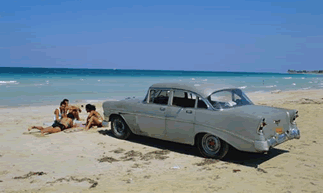A Memoir of the 20th Century
Of all the men in the Reagan era, few made as deep an impression as Caspar Weinberger. And by "Reagan era," we mean, in this case, Sacramento, too, for "Cap" was there-working by the governor's side. He was also with Nixon and Ford, in Washington. And he has managed to be in several other interesting places as well. In 1990, Weinberger published a book called Fighting for Peace: Seven Critical Years in the Pentagon. It was a solid book, but the Weinberger career-and life- deserved a better one. With In the Arena, it is here.
 The phrase "in the arena" will be instantly familiar to any student of American politics, culled as it is from the famous Teddy Roosevelt passage about "the man who is actually in the arena, whose face is marred by dust and sweat and blood"-who is not a mere spectator, or critic. The title was used by Nixon, for one of his many post- presidential books, and also by Charlton Heston, for his 1995 autobiography. By the time Weinberger realized this, it was too late: The book had already gone too far in the publication process. But, worn as it may be, the title fits.
The phrase "in the arena" will be instantly familiar to any student of American politics, culled as it is from the famous Teddy Roosevelt passage about "the man who is actually in the arena, whose face is marred by dust and sweat and blood"-who is not a mere spectator, or critic. The title was used by Nixon, for one of his many post- presidential books, and also by Charlton Heston, for his 1995 autobiography. By the time Weinberger realized this, it was too late: The book had already gone too far in the publication process. But, worn as it may be, the title fits.
From the beginning, Weinberger identified with TR, for Cap, like that president, was a sickly boy, who aspired to be a man of strength and importance. He was born in San Francisco in the portentous year of 1917. Weinberger subtitles his book "a memoir of the 20th century"; the description is not overly grand. He attended a parade in honor of Lucky Lindy, who had just crossed the Atlantic. He went to see a defeated President Hoover cast his vote in November 1932. And he remembers the building of the Golden Gate Bridge: the "lines of desperate, out-of- work, able-bodied men who would wait, day after day, for one of the construction workers to fall or injure himself so they could take his place."
The boy was always smitten by politics and government. By 15, he was reading the Congressional Record "avidly and daily." He made endless scrapbooks filled with bits about the national conventions and the like. He was an incorrigible Republican, arguing to one and all about the "Soviet menace" and the beauty of small government. In his senior year of high school, he was elected student-body president, promising a new constitution. His graduation speech was entitled "The Honorable Profession of Politics."
With a scholarship to Harvard College, he was really on his way. He majored in government, though he found the classes "lifeless" and tinged with "liberal bias." He spent much of his time in journalism, contributing a column to a magazine back home, and becoming president of the Crimson, the student newspaper. He was intensely idealistic, then as now: The "street side" of Dexter Gate said, "Enter to Grow in Wisdom"; the "Yard side" said, "Depart to Serve Better Thy Country and Thy Kind." "It has been an inspiration to me ever since." There is no snickering in Weinberger.
He went on to Harvard Law School, but then the war came, although the U.S. was not yet in it. Weinberger wanted to get started nonetheless. He tried to join the RAF or the Canadian force, but poor eyesight kept him out. He finished law school in June 1941, then signed up with the U.S. infantry in September, still eager, and restless: He idolized Churchill, and saw the conflict as one of pure good and evil. After Pearl Harbor, he was sent to Australia, and ended up a captain on General MacArthur's intelligence staff. One day, Eleanor Roosevelt came to visit-and Weinberger, ever the die-hard Republican, made himself scarce. "I took my politics rather too seriously then," he nicely notes.
After V-J Day, it was back to California and law practice-and politics. Weinberger always had a perfectly fine job at a law firm, but he was forever looking for ways into public life. "The trouble with Cap," said a friend, "is that he can't stand making money." His all-enduring wife, Jane, would sigh over her husband's "non-profit activities." He was elected to the state assembly, ran for attorney general-losing-and served as chairman of the California GOP. He also kept his hand in journalism, writing a column and hosting a public-TV show called Profile: Bay Area. Among his guests was "an extremely eloquent and persuasive Malcolm X."
When Reagan was elected governor, he called on Weinberger to be the state's finance director. Not long after, Nixon called, from Washington-to ask Cap to serve as chairman of the Federal Trade Commission. He did so. Then he became deputy director of the Office of Management and Budget (under George Shultz), then director. (It was in this period that Weinberger earned the nickname "Cap the Knife"-a William Safire coinage.) He ended his Nixon-Ford career as secretary of Health, Education, and Welfare. Weinberger is engrossing on the various Nixon weirdnesses, and on the major policy debates of the time, including the (pathetic) imposition of wage and price controls. Gerald Ford, he holds in suitably high esteem.
It was when Reagan called again-this time after being elected president-that Weinberger had his real rendezvous with destiny: serving as secretary of defense at a time when the military desperately needed rebuilding; only six years after the helicopters had lifted off from the embassy roof in Saigon; when the Soviet Union was enjoying unprecedented advantage. Weinberger may be seen as the very embodiment of Peace Through Strength, a meaningful slogan for once. He saw things with rare moral clarity, and talked that way, and acted that way. He and Reagan were intent on rollback-musty notion-not detente. In the present volume, Weinberger gives what is probably as good a short brief for Reagan's foreign and defense policies as can be found.
He also includes a chapter on the Iran-contra affair, a nightmare for him, as for many others. The harassment of Weinberger was clearly unjustified, and he was (preemptively) pardoned by the first President Bush on Christmas Eve Day 1992. Weinberger immediately wrote Bush a letter thanking him, and he has written a similar note of appreciation on December 24 every year since. About the president-between-the- Bushes, Weinberger is blistering, charging that "the Clinton administration inexcusably hollowed out our military capability"-and charging much more, too. He closes his book with reflections on his recent experiences as a top man at Forbes, Inc.
It is, in many ways, a formidable book. It comments incisively on the events, ideas, and political personalities of a very long and difficult stretch. There is a ton of detail here, and the reader will not want to wade through it all; but it is not frivolous detail. Weinberger is at least as absorbed by domestic affairs as he is by grand world affairs. He has written a deeply personal book, too. He expresses great love: for his parents, for his brother, for his wife, for his children-and that's not to mention other objects of love, such as California and country (and cooking-Weinberger is always critiquing the food, from the Army to the Bohemian Grove). The author, throughout, is modest, self- deprecating, amusing, candid, earnest, and naturally patriotic. There is in these pages an overarching sense of decency. Weinberger is a throwback (high compliment). He is a Frank Capra American, though never naive. He reminds one a lot of Reagan: a more detail-oriented Reagan, without the Hollywood past.
The book is far from sugary, and not only with respect to Bill Clinton and other Democrats: Weinberger unquestionably has Nixon's number, and he jabs repeatedly at George Shultz, who was long a rival, and often in Cap's way (as Weinberger would see it). This is by no means a score- settling or resentful book, but neither is it docile.
In telling his story, Weinberger is keen not only to pronounce on major events, but to inform readers what it was like simply to be around: what the desks and telephones in the defense secretary's office were like; how a typical day went. Although he is "in the arena," he is also the wide-eyed spectator, delighting in the workings and pomp of government. He is wowed at inaugurations, and reverent in the presence of Congressional Medal of Honor winners. At one point, he writes, "Now I, a schoolboy from California, was making decisions that might affect the course of history." OMB was "particularly good fun for someone as fascinated by government as I am." OMB "particularly good fun"? Weinberger is a wonk with a song in his heart.
It is impossible-at least I found it so-not to read this book in the light of September 11. It is also impossible-at least I found it so-not to conclude that this is exactly the kind of man we could use right now, many times over. But then, he is the kind of man this country can always use.
One of his best anecdotes involves a college visit to the home of a buddy's fiancee: The fiancee was a younger sister of Katharine Hepburn. Mrs. Hepburn-the mother-"was a vigorous, earthy woman," and also a staunch political liberal.
At dinner one night, she listened to me defend, in a rather halting and shy way, some of my conservative beliefs, and finally she grabbed my hand and said, "Let me see your palm! Where do you get all this?!" She studied it for quite a while, and then, with great irritation, pronounced, "My God, you're going to live forever!"


